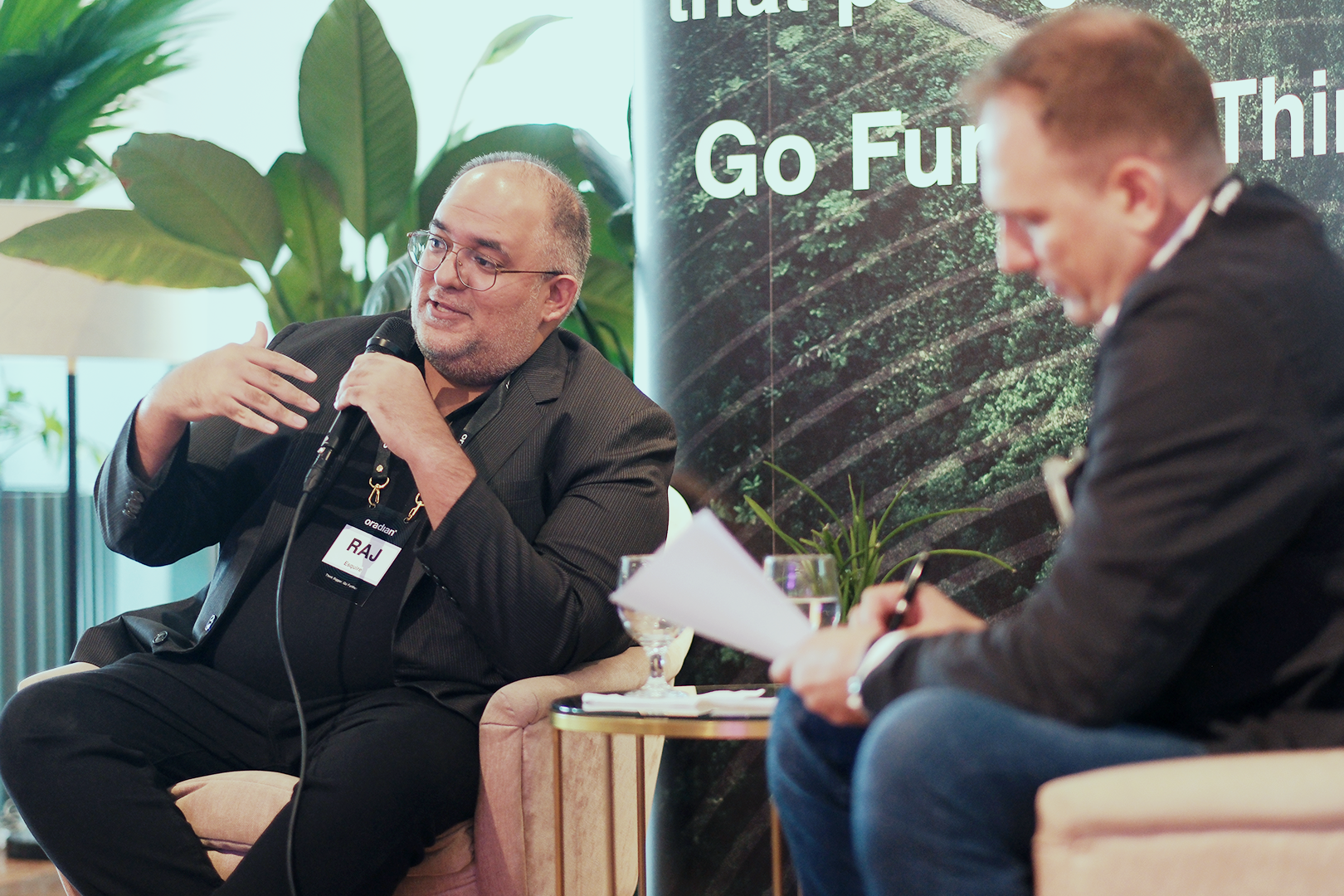Esquire Financing Inc. is the undisputed leader in growth-stage financing in the Philippines. For over ten years it has been helping to realise the ambitions of MSMEs across the country – and today it is the midst of a digitalisation journey, powered by Oradian.
CEO Rajan Uttamchandani spoke to Oradian’s Antonio Separovic about how Esquire’s journey began, and how it hopes to leverage Oradian’s advanced core banking system to take its business to the next level.
Starting Esquire.
“There are about a million MSMEs in the country – less than 10,000 of them have access to any sort of financing, and the other 990,00 are underbanked and undeserved in terms of financing,” explained Rajan. “That’s where Esquire came in, to bridge that gap between MSMEs and the banks.”
For Esquire, the key difference between it and the banks is the flexible and open approach it takes towards SMEs. “The banks are flexible when they have to be, especially in the larger ticket accounts, but I don’t think they look at SMEs as a business lending solution – they’re looking at SME as a retail product or a consumer finance solution. What we do is try to improve on the flexibility that banks have for lager corporates, and bring it to SMEs.”
Although Esquire has been successful in its mission, Rajan still sees serious potential for growth in serving this sector.
“The gap’s actually widening, especially post-COVID. Banks find SMEs even riskier than they did pre-COVID, and the number of MSMEs is actually growing faster than the number of clients we can service. Despite already having 20,000 borrowers, we feel the addressable market is at least 100,000 customers over the next five years.”
Digitalisation strategy.
To scale up to the right size to serve these borrowers, Esquire realised it needed to, in Rajan’s words, “have our back office in order”. That meant developing a digitalisation strategy.
“We started this digitalisation journey about ten years back. Our goal was originally to establish 100 branches, and then we decided we didn’t need that many branches, as people are able to scale-up and apply online. Today we’re at three branches, and we’re servicing customers nationwide. The digitalisation journey was really a way to keep our costs down while being able to scale our business efficiently.”
At the heart of Esquire’s digitalisation strategy was a desire to bring down costs while continuing to scale rapidly and efficiently. Rajan explained it in extremely simple terms: “The more you invest in technology, the less of a branch network you’ll need, and the less of a branch network you need, the fewer overheads you’ll have overall.”
“With technology,” he continued, “you’re able to scale faster without having to roll-out additional branches, so I think the investment in technology isn’t a cost-saving strategy, but a scale-maximisation strategy. When we’re thinking about the investment in technology, we’re not thinking about the cheaper solution but about which solution will help us to grow the fastest. A lot of people misconstrue technology as cost saving, but it might not directly translate to cost saving.”
Ultimately, in an increasingly crowded financial market, Esquire understood digitalisation to be key to remaining competitive.
“Having a digitalisation strategy has to be in the mind of every CEO or president, because if you don’t have a digital footprint or a digital strategy in this day and age you will fall behind. We saw this with COVID: the businesses that were ready to be able to operate online were the businesses that succeeded during COVID.”
Choosing Oradian.
The basis of Esquire’s business is its three values: efficiency, flexibility, and integrity. This was a major motive for selecting Oradian as its technology partner.
“We saw these three values in Oradian,” Rajan explained. “Oradian was able to adapt its system to meet the needs of our customers, as well as our internal salespeople. That sort of efficiency and flexibility is why we chose Oradian versus the other providers.”
But there was more to Esquire’s choice. In particular, the local support that Oradian offered, something that was especially helpful during the implementation process.
“None of the other providers we were talking to had local support. Having local support on the ground was really an advantage for us.”
“What was good,” he continued, “was that Oradian supported us throughout that whole journey, and that’s what made implementation much easier. We actually expected it to take longer, and the fact it was less than a year – I think about six months in total – before we were able to run the first loan on the platform was actually very impressive.”
Final lessons.
To Esquire, serving the SME sector isn’t a simple profit-making enterprise – there is an important social aspect to it, and that formed the crux of Rajan’s advice to the rest of the industry.
“I appeal you to look at the SME sector,” Rajan said. “The consumer sector is always the more attractive sector because it’s the larger customer base in a population of 110 million. But the SME market seems to be the more loyal market.”
“When you’re doing SME lending, you’re not really looking at profitability as your number one driver for doing business. It’s really about financial inclusion. In this type of business it’s very important to be responsible lenders and to support your customers whether its profitable for you or not.”
To find out more about how your business can power its growth through technology, get in touch with us today.

